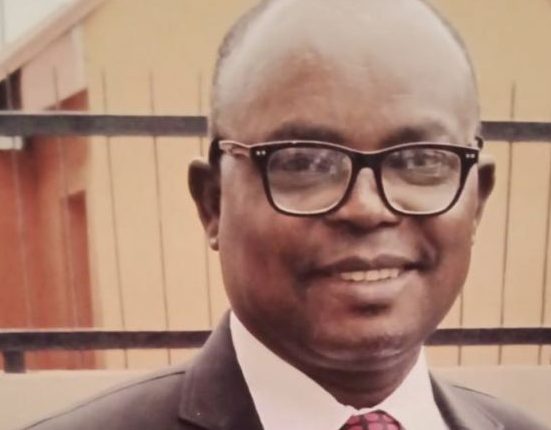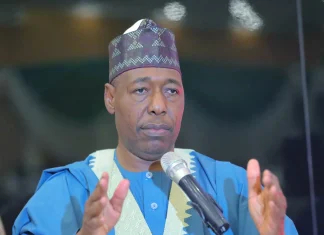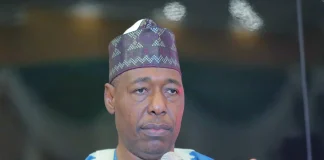turnpot@gmail.com 0705 263 1058
Decades back, in those giddy days of military rule, David Mark, one of the top military brass, was reported as saying that telephones are not for the poor. Mark was the Minister of Communications whose duty was to make telephones available , accessible and affordable for all. He failed and to mask his failure, he blurted out the embarrassingly outrageous statement that telephones were not for the poor. Truly, in that era, the telephone was a status symbol. You found telephones with and in the homes of the rich. The magical box was stationary and usually sat majestically in a conspicuous place in the sitting room, unlike the handset of today called the mobile phone because it is truly mobile.
Also in those days, it was a symbol of status if you had a neighbour or family member with a phone at home or in the office, where you could go to receive or make a call. I remember those were the days when NITEL was king and everyone had to flock to their offices in select areas to wait in long queues and for long hours to make calls. In those days, too, calls to some destinations could only be made at specific periods of the day, some at midnight, because of network problems. It was easier in those days for a camel to pass through the eyes of a needle than for a poor person to make calls within the country, not to talk of international calls! You are not an ordinary person if you have someone abroad who can call you or that you can call.
Those days are far behind us now! Gradually, we began to have hand-held telephone sets. Or, better still, mobile phones that could be carried about in one’s car or bag. I remember my 090 Mobitel luggage of a phone when I was the editor of PUNCH newspapers. Only three of us had it in the entire organization – the Chairman, the Managing Director and my humble self. It was expensive making calls those days. I remember that I once was in charge of processing bills emanating from those Mobitel phones. After this came the revolution of GSM, which demystified hand-held or mobile phones and every Tom, Dick, and Harry could own phones. This radical change took place within a generation and David Mark himself witnessed it. He witnessed the poor owning phones.
At first, GSM was expensive, very expensive. Owning the SIM card alone was an achievement; unlike today when it has become commonplace. The cost of a SIM card alone was prohibitive to the ordinary folk, not to mention owning a handset, which, in those days, were not of various shapes, kinds and types that we have today. NOKIA 3310 was one of the most popular telephone brands of the time; bulky but rugged and reliable. Today, technology has taken GSM to dizzying heights. It has also at the same time demystified it. Everyone now has a phone; even beggars on the street have phones. Calls can now be made from anywhere, everywhere and at any time. In Nigeria, telephones are no longer for the rich. It is, today, not just a fact of life but a way of life to virtually everyone. Hardly would you see anyone without a phone. Many Nigerians carry multiple phones. Sleek phones and even sleeker ones flood the market at intervals and SIM cards have become 10 for one penny! David Mark has been proved wrong!
On many, if not all fronts, life can be made more abundant for all and sundry; only that the leaders are not minded to do so. And they mask their failure or indifference in terms that give the impression that it is a tall order achieving such milestones. The fact, however, that Millennium Development Goals are set with datelines shows that these goals are achievable. Other nations achieve them; why not us? Water for all; housing for all; education for all; eradication of this or that; putting an end to open defecation, etc are some of the MDGs that have been set and that have been achieved in varying degrees elsewhere. Why not also here? There is hardly any goal set that is not achievable. Failure to achieve them is, often, evidence of failure of leadership. There is nowhere this is more evident in this country than in the area of power generation.
Apart from security of life and property and making food available to the people, power supply ought to rank next in the order of priorities. Even those two are helped by the availability of power. God made no mistake when He made light His first creation. “And God said, Let there be light, and there was light” (Genesis 1:3). Before then there had been darkness, gross darkness. And just like Jesus Christ said, man works in the day (when there is light or power supply); night comes (darkness/power outage) when no man can work. Only God knows how much Nigeria has committed to power generation since its inception as an independent country in 1960. Since the beginning of the current Fourth Republic in 1999, the quantum of funds purportedly committed to power generation has been counted in billions of dollars. Yet, the more resources we commit, the less power we generate. The more we look, the less we see. Power generation, which is commonplace elsewhere, has become rocket science here.
And that failure has affected everything down the line. The quality of life is affected. The economy takes a beating. Cost of power generation is one of the major reasons why businesses are relocating from Nigeria. With that comes loss of revenue and loss of jobs, accentuating poverty and its attendant corollary. Little development and progress can be made in the face of epileptic power supply. Huge sums of money is wasted on the procurement and maintenance of generating sets and fuel to power them. The inconveniences involved apart, its effects on the environment are massive. High cost of doing business here affects cost of products and services, making businesses that operate here less competitive when compared to others in climes where power supply is more stable.
Government control failed to deliver the desirable results in the power sector. Civilians failed. Military, too, failed. Parliamentary system of government failed. Presidential system, too, has failed. Where, then, do we turn? Unbundling, as they called it, of the behemoth called NEPA also failed. Privatization and commercialization – everything we have tried has failed to yield the desired results. We get less all the time. Yet, customers have continued to pay more money for services not rendered. They pay to get light but get darkness in return. Yet, they are required again and again to pay more to get more of the same darkness. Another tariff review, always going upward and never coming down, defying Isaac Newton’s Law of Gravity, is in the offing again. How long?
The quantum of the new tariff increase is staggering; and there is no assurance of service improvement. Why pay through the nose for services you are almost certain will not be rendered? The statement that only Band A or the upper echelon customers will be affected does not offer enough assurance because, from experience, we know that the tariff increment will percolate to the other bands sooner or later.
When that happens – as the Presidency itself has said it soon will – then, power supply would effectively have been priced beyond the reach of the common man. What, then, will be for the poor in this country? The governor of Akwa Ibom state, Pastor Umo Eno, was recently quoted as saying that eggs are not for the poor. With nanma (beef), fish, chicken, even ponmon and shawa already priced beyond the reach of the poor, shall the poor now have to hunt rats, lizards or grasshoppers to obtain a semblance of animal protein? Or shall it be Toads for supper? Apologies, Chukwuemeka Ike! My dear is that some day, our leaders could find a way to cage the air we breathe, price it beyond the reach of the poor and appropriate it to themselves alone! It would then mean that the common man is done for!
FEEDBACK
Marwa and NDLEA are doing a marvelous job. The criminals will not stop. They will always devise means to stay ahead of the game. We all must fight to rid the country of criminals and criminality. Corruption, they say, always fights back. A lot of criminals have been promoted to high offices. They have the means to fight back and they are using it to the hilt. – Pa EK Odeleye.
The advantages of state police are overwhelming (although) there is nothing that is hundred percent perfect. Subjects like state police should not have been left in the hands of politicians but should have been subjected to people’s vote of yes or no. This is what obtains in other climes. It is high time the generality of the people’s wishes were respected in Nigeria. This issue of state police has been on for sometime now and considering the state of insecurity in the nation presently, there is the need to hasten its formation by subjecting it to people’s vote. I will not be surprised, though, if the current efforts to establish state police (because of its urgent need) fails to see the light of the day or is stalemated. I do not reckon with a situation where some states have sanctioned the creation of state police while others are still yet to make up their mind. – Dr. JF Olukotun.
State Police are not good if they are not reporting to the State House of Assembly. Likewise, the IG should be reporting to the House of Representatives. Oversight systems must be established, especially with Nigerians having a proclivity for creating tin gods! – Adefemi Falase.
Those governors dragging their feet are likely to be those hobnobbing with terrorists and militants in their state! They know there will be no hiding place for them once they have state police personnel to assist in the maintenance of peace in the state! They will have themselves to blame for security breaches, NOT the FG again! – Femi Ogundowole.
State Police is a welcome development at this time in the history of the country. After the President has given the nod, I do not expect any dragging of feet again. The president even advised the governors to start with farm/forest guards to assist farmers in their state in the interim. Many of them are yet to start doing anything; it is as if they are happy with the senseless killing of innocent people in their state! I suggest that the National Assembly formulate laws to delineate the functions of state police to compliment federal police. – Kola Oloye.
* Former Editor of PUNCH newspapers, Chairman of its Editorial Board and Deputy Editor-in-chief, BOLAWOLE was also the Managing Director Editor-in-chief of THE WESTERNER newsmagazine. He writes the ON THE LORD’S DAY column in the Sunday Tribune and TREASURES column in New Telegraph newspaper on Wednesdays. He is also a public affairs analyst on radio and television.
Share your story or advertise with us: Whatsapp: +2347068606071 Email: info@newspotng.com















